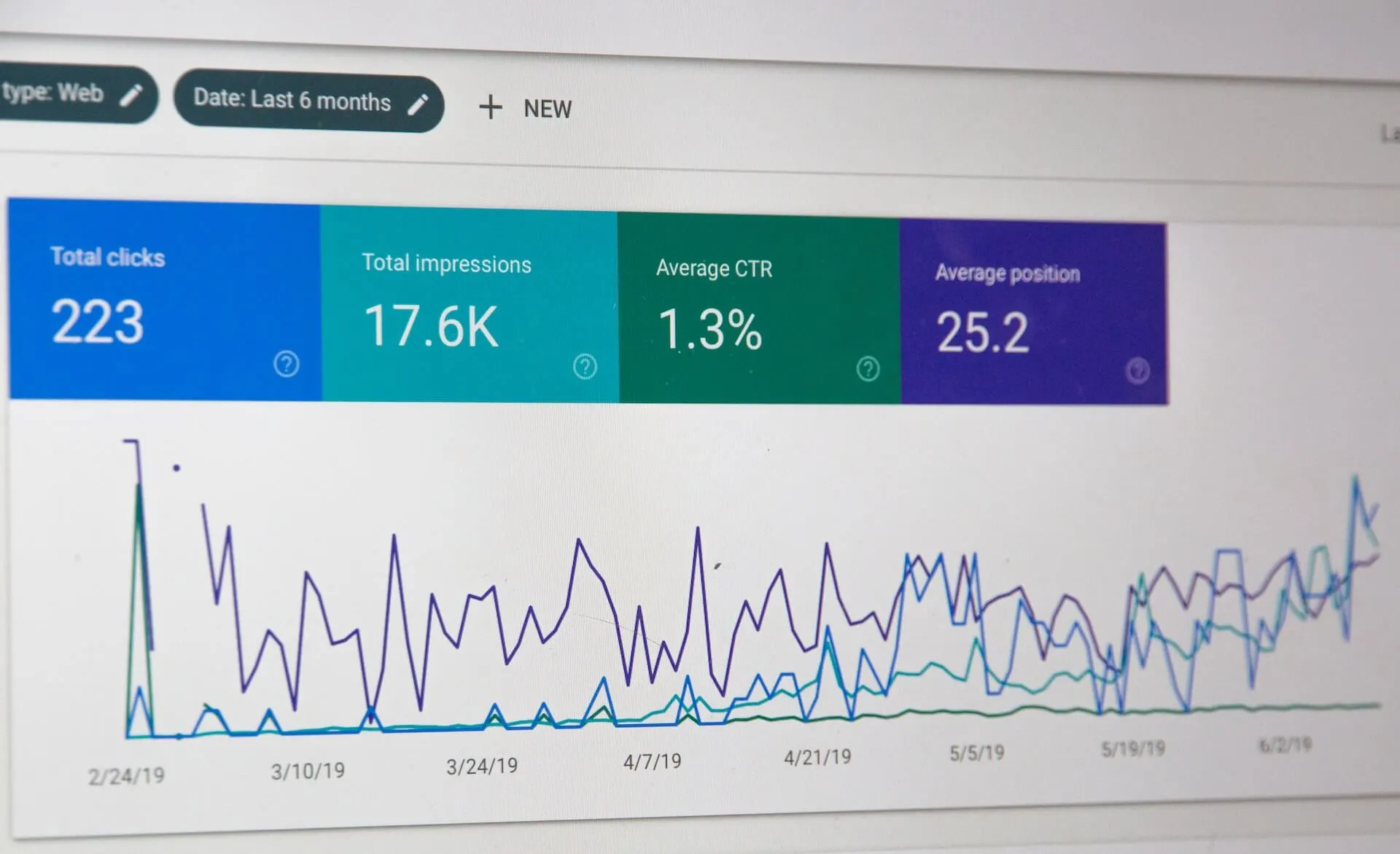Originally published July 31, 2023 , updated on July 31, 2023
In the fast-paced world of FinTech, business owners face the unique challenge of effectively communicating complex concepts and cutting-edge technology to a diverse audience, including industry experts and individuals with limited financial expertise.
FinTech content writing services become a crucial tool in overcoming this challenge. It empowers fintech businesses to inform, educate, and engage their target audience in a way that explicitly drives growth, builds brand awareness, and establishes industry leadership.
By crafting compelling and accessible financial content writing, fintech business owners can certainly navigate this landscape. They will effectively convey their value proposition and establish themselves as trusted authorities in the dynamic realm of financial technology.
FinTech Content Writing Services: The Winning Formula
A successful FinTech content marketing strategy requires a winning formula that combines several crucial elements.
In this article, we detail each of these components to help you craft compelling financial content writing that identically resonates with your audience and drives growth in the FinTech industry.
By following these guidelines and adapting them to your business needs, you can create content that positions your FinTech company as a thought leader and trusted resource.
1. Understanding Your Audience

Understanding your audience is important because it allows for creating compelling and tailored content that resonates with their interests, challenges, and aspirations. It eventually leads to increased brand awareness, trust, and customer acquisition. Here are some ways to help you understand your audience:
B2B and B2C Segmentation
FinTech audiences can be broadly categorised into B2B (business-to-business) and B2C (business-to-consumer) segments. B2B clients are typically banks, credit unions, investment firms, and other financial institutions. On the other hand, B2C clients are individual users of financial products and services. Understanding which segment your company serves will help you develop content that resonates with your specific target audience accordingly.
Demographic Insights
Demographics such as age, gender, education level, and income can influence your audience’s needs and preferences. For example, younger audiences may be more interested in digital banking and cryptocurrency topics, while older audiences might be more focused on retirement planning and investment strategies.
Psychographic Insights
Psychographics involves understanding your audience’s attitudes, values, and beliefs. In the FinTech space, this could include their level of trust in technology, openness to new financial solutions, and also financial literacy. This information can help you write financial content that markedly speaks directly to your audience’s mindset and concerns. Specialist FinTech content writers will know how to leverage these insights.
Tailoring Content
Knowing your audience’s demographics and psychographics will enable you to tailor your content to their needs, interests, and pain points. For example, if your audience primarily comprises small business owners, you might focus on topics such as cash flow management, business loans, and payment processing.
2. Setting the Right Tone and Voice
When it comes to content writing for fintech, setting the right tone and voice is crucial for effectively communicating the industry’s complexities while establishing credibility, trust, and relatability with your target audience. Here are some ways you can set the right tone and voice:
Establishing Credibility
Tone and voice are crucial in FinTech content writing because they establish credibility and trust with your audience. The right tone and voice can make your company seem knowledgeable and reliable, while the wrong tone and voice can create confusion or even mistrust.
Balancing Technical Accuracy with Accessibility
Striking a balance between technical accuracy and accessibility is key. While it’s essential to use accurate terminology and provide in-depth information, you must also ensure that your content is easily digestible for readers who may not have a deep understanding of finance or technology.
Friendly, Approachable, and Professional Tone
Adopt a friendly, approachable, and professional tone to particularly make complex information accessible to a wider audience without sacrificing accuracy or expertise. Using clear, concise language and avoiding industry jargon can surely help make your content more approachable. FinTech content writers will specifically know how to strike a balance between being friendly and professional.
Adapting to Different Formats
Different content formats may require adjustments in tone and voice. For instance, blog posts might be more casual and conversational, while whitepapers and case studies may require a more formal, authoritative tone. If your company isn’t well-versed in creating content for these varying formats, hiring a professional FinTech content writing agency could be a good idea.
3. Focusing on Value-Driven Content
In the competitive landscape of fintech content marketing, focusing on value-driven content is undoubtedly paramount to engage and educate the audience, build brand authority, and ultimately drive meaningful connections, conversions, and long-term customer loyalty.
Importance of Providing Value
Value-driven content is essential in FinTech because it helps readers solve problems, learn new skills, or stay informed about industry trends. You can establish your company as a trusted resource and encourage repeat visits to your website or blog by providing valuable information.
Types of Value-Driven Content
Examples of value-driven content include educational articles, how-to guides, case studies, news analyses, and expert opinions. By offering a diverse range of content, you can cater to different audience preferences and also ensure your content remains fresh and engaging. FinTech content writing services are experts at ensuring they produce value-driven content.
Addressing Industry Trends, News, and Innovations
Staying up-to-date with the latest developments in the FinTech industry can significantly help you create timely, relevant content that keeps your audience informed. Regularly monitoring news sources, industry reports, and social media can help significantly you identify emerging trends and topics your audience might be interested in. This is where a FinTech content writing agency can come in. These experts keep their finger on the pulse of the latest trends in the industry. They leverage them to ensure your content is exciting and current.
Balancing Promotional and Informational Content
While showcasing your company’s products and services is essential, you should avoid being overly promotional in your content. Strive for a balance between promoting your offerings and providing valuable, objective information that specifically helps your audience make informed decisions.
4. Utilising Data and Research
Harnessing the power of data and research in fintech content marketing is a strategic approach. It empowers businesses to deliver highly relevant and data-backed insights. This strategy surely enables informed decision-making, enhancing customer experiences, and gaining a competitive edge in the ever-evolving financial technology landscape.
The Role of Data in FinTech Content Writing
Data plays a critical role in FinTech content writing, as it helps establish credibility and trust with your audience particularly. You can significantly demonstrate your expertise and provide objective, evidence-based information by incorporating data-driven insights into your content.
Incorporating Data-Driven Insights
Use charts, graphs, and infographics to visually represent data and make it easier for readers to understand complex concepts. Be sure to provide context for the data and explain its significance to your audience. When you hire financial content writers, they can help you incorporate these insights effectively.
Citing Reputable Sources and Research
When referencing data or research, ensure that you use reputable sources, such as government publications, industry reports, or peer-reviewed academic studies. Properly attributing your sources adds credibility to your content and helps you avoid potential legal issues related to copyright infringement.
Ensuring Content is Accurate and Up-to-Date
Regularly review and update your content to ensure that it remains accurate and current. Outdated or incorrect information can damage your credibility and reputation, so it’s essential to stay vigilant and update as needed. If you employ the services of a FinTech content writing agency, they will take care of this for you.
5. Implementing Storytelling Techniques
In the realm of fintech content marketing, implementing storytelling techniques indeed becomes a powerful tool to captivate audiences. It also helps forge emotional connections and simplify complex financial concepts. This ultimately drives engagement, brand affinity, and also a deeper understanding of the transformative potential of financial technology solutions.
Humanising FinTech with Relatable Stories
Storytelling can humanise FinTech and make it more relatable to readers. By sharing real-life stories of individuals or businesses who have benefited from your products or services, you can certainly create an emotional connection with your audience. It helps you demonstrate the tangible impact of your offerings. A FinTech content writing agency will have expert writers who weave stories into their content and therefore, make your brand seem more relatable.
Using Storytelling to Engage Readers and Simplify Complex Concepts
Well-crafted stories can help explain complex concepts in an engaging and easily digestible way. For example, you could use a narrative about a small business owner who successfully managed their cash flow using your financial tool to illustrate the benefits of your product.
Incorporating Customer Success Stories and Testimonials
Sharing customer success stories and testimonials can help build trust and credibility with your audience. Expert FinTech content writers will know how to highlight the specific challenges your customers faced, the solutions your company provided, and consequently, the results they achieved.
Creating a Narrative Arc
A clear narrative arc with a beginning, middle, and end helps maintain reader interest and improve content comprehension. Financial content writers will structure your stories in a way that sets the stage, presents a challenge or problem, and then showcases the resolution or outcome.
6. Implementing Search Engine Optimisation (SEO)

In the dynamic realm of fintech content marketing, implementing search engine optimisation (SEO) strategies undoubtedly becomes a fundamental approach to ensure discoverability, visibility, and increased organic traffic. They ultimately maximise the reach, impact, and effectiveness of financial technology content in the digital landscape accordingly.
Importance of SEO in FinTech Content Writing
SEO is indeed essential for increasing visibility and reach in the FinTech industry. Optimising your content for search engines can improve your website’s ranking in search results. It attracts more organic traffic and reaches a wider audience.
Identifying Relevant Keywords and Phrases
A FinTech content writing agency will conduct keyword research to correspondingly identify the terms and phrases your target audience is searching for. Tools like Google Keyword Planner, Ahrefs, and SEMrush can surely help to find relevant keywords with high search volume and low competition.
Incorporating Keywords Naturally and Effectively
Include your target keywords in your content, ensuring they are incorporated naturally and don’t appear forced or excessive. FinTech content writing services will focus on using keywords in strategic locations, such as the title, headings, and meta description, and throughout the body of your content.
Optimising Content for Search Engine Algorithms and User Experience
Besides keyword usage, search engine algorithms consider factors like page loading speed, mobile-friendliness, and user engagement when ranking content. Fintech content writers will know how to optimise your website and content to ensure a smooth user experience. They improve your search engine rankings and keep your audience engaged.
7. Encouraging User Engagement and Interaction
Encouraging user engagement and interaction in fintech content marketing is undeniably a vital strategy that fosters meaningful connections. It builds trust and cultivates a community-driven environment. Also, it allows users actively participate, share insights, and contribute to the growth and success of the financial technology ecosystem.
Incorporating Interactive Elements
Interactive elements such as polls, quizzes, and infographics can boost user engagement and interaction. These elements can also help break up large blocks of text, making your content more visually appealing and easier to digest.
Encouraging Reader Comments and Social Sharing
Encourage readers to leave comments, ask questions, and share your content on social media. This helps foster a sense of community among your audience and eventually increases your content’s reach and visibility.
Responding to User Feedback and Questions
Actively engage with your audience by responding to their comments, questions, and concerns. This demonstrates that you value their input and helps build trust and rapport.
Utilising Calls-to-Action (CTAs)
Incorporate CTAs throughout your content to guide your audience towards a desired outcome. It includes tasks such as signing up for your newsletter, downloading a whitepaper, or requesting a product demo. Financial content writers will know how to use CTAs to help improve conversion rates and drive tangible results for your business.
8. Measuring Content Performance and Adjusting Strategy
Measuring content performance and adjusting strategy in fintech content marketing is undoubtedly a critical practice. It enables data-driven decision-making, optimisation of messaging, channels, and tactics. Additionally, it ensures continuous improvement and success in delivering impactful and relevant content to the target audience in the ever-evolving financial technology landscape.
Importance of Tracking Content Metrics

Regularly monitoring and analysing your content’s performance is crucial for identifying areas of improvement and refining your strategy. A Fintech content writing agency can help you gain valuable insights into your audience’s preferences and behaviours by tracking metrics such as page views, bounce rate, and social shares.
Identifying Key Performance Indicators (KPIs)
Establish KPIs to measure the success of your content marketing efforts. By tracking your KPIs, you can undoubtedly determine whether your content resonates with your audience and drives the desired results. Common KPIs that FinTech content writing services will explicitly track include website traffic, lead generation, social media engagement, and conversion rates.
Analysing Data to Optimise Content Strategy
Use the data you collect to identify trends and patterns, such as which types of content generate the most engagement or which topics your audience finds most interesting. With the help of FinTech content writers, you can use these insights to refine your content strategy and create more targeted, effective content.
Continuously Refining and Improving Content
Regularly review and update your content to ensure it remains accurate, relevant, and engaging. By continuously refining and improving your content, you can certainly maximise its impact and achieve long-term growth.
Conclusion
The winning formula for FinTech content writing combines a deep understanding of the audience, the right tone and voice, value-driven content, data utilisation, storytelling techniques, SEO, user engagement, and also ongoing performance measurement and strategy adjustment. FinTech content writing services know how to do this and can help you implement these strategies. They create high-quality content that resonates with your audience, establishes your company as a thought leader, and drives business success in the FinTech industry.
Goodman Lantern can help you embrace these best practices to position your FinTech business for long-term growth and ensure that your content effectively addresses the unique pain points of the industry. If you’re looking to partner with an expert Fintech content writing agency to help you achieve your business goals, get in touch with us today.
Post Views: 1344


















